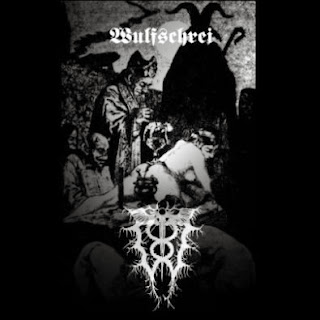When I first heard about Deafheaven’s Sunbather I was awfully excited. It seemed to be gathering near universal praise from critics as well as substantial support from fans. There were a few detractors, but they were often dismissed for being “close minded” or that they just didn’t get the musical genius contained within the album. I rarely find myself disagreeing with the community at large; if something is generally well thought of, I can usually enjoy it. Even better, I’d heard them compared to Alcest, which I adore (well, Écailles de lune anyways). So it’s with no small amount of disappoint I find myself after listening to Sunbather. If Deafheaven is like Alcest, they are only related in that they are somewhat similar in terms of musical style, yet leagues apart in terms of musicianship and overall quality. Just like Wonder Bread is similar to a fresh croissant, or Kraft singles are like Roquefort, or how Franzia is like champagne, or… Well, you get the picture.
I suppose the best place to begin when describing this disappointment is the music, though they get bonus points for having one of the shittiest album arts of the year. Deafheaven plays a mixture of black metal and post rock, and throws some shoegaze into the mixture. It has plenty of blast beats and tremolo but this is most certainly not black metal. Not good black metal anyways. Imagine yourself as a newcomer to black metal and have just heard In the Nightside Eclipse. Now, assuming you aren’t suffering from a debilitating brain injury you’ll only naturally go seek out more. But then imagine that instead of checking out Immortal, Mayhem, or Darkthrone, you somehow find yourself listening to Zarach Baal Tharagh or newer Dimmu Borgir. Since we’ve already assumed you aren’t suffering from a brain tumor that ruins your ability to reason, naturally you’ll dislike this, and it might even put you off from listening to anything else. That’s kind of the experience that I’ve had after listening to Sunbather. I’m certainly no purist or kvlt master, but this album has certainly soured my views on post-rock/black metal/shoegaze combinations. “If something like this gets rave reviews, then what’s the worst of the genre like?” I find myself wondering. Indeed, if this is one of the better of the genre’s offerings I’ll likely stay away from it in the future.
And back to the music now; like I said, this album has a large amount of black metal influence and contains a fair amount of tremolo and blast beats, but it’s just incredibly boring. The riffs are stale, shallow, repetitive, boring, etc. etc. It’s not actively terrible in the way that pop or country are, but it’s just completely pathetic, weak shit. There’s no real variation in the songs, and there are two different styles; loud black metal inspired parts, and quiet, acoustic or finger picked guitar sections. That’s it. That’s the extent of these Californians’ creativity and songwriting ability. Hard to see why they’re being praised for such an unexciting effort. On my fourth or fifth listen, I suddenly realized that I remembered exactly zero riffs or anything. The entire album is just a forgettable, misshapen, poorly-cobbled-together mishmash of genres that fails at every level. On top of the mediocre guitars and songs, the vocals are just abysmal. Sure, George Clark screams his little heart out, but it’s just poor. The vague, distant shrieks are neither wrenching or stirring, and at most conjure up mild annoyance. And to cap all of that, the lyrics are a joke, and have more in common with teenage angst ridden metalcore lyrics than actual metal lyrics. To be fair, Alcest’s lyrics might be like this too, but since I can’t speak French (I have testosterone in my body) I can’t really complain about that.
The only thing about this album that saves it from being a complete loss is the drumming. Sure, it’s not outstanding or anything, and it certainly won’t make you forget about how terrible the rest of the album is, but it gets the job done. But that’s not something that can really get Deafheaven any praise because it was done by a session drummer. It’s most definitely not a good thing that the best performance on an album was done by a session member, especially when it’s not done by a well-known musician (i.e. Hellhammer, who will apparently do drums for a six pack of Heineken, so I don’t know why they didn’t hire him). The mix might be helping me view the drumming in a more positive light than it deserves though. Everything is thrown together and compressed to the same depth within the songs, and it all blends together. Perhaps Deafheaven realized how weak the guitars and vocals were so they simply make the decent drumming louder in an attempt to mask this.
As far as failures go, this is definitely not the worst they can get. Sunbather isn’t the worst album of the year or anything quite so drastic. It’s quite a disappointment to be sure, but to rank it as the worst album of 2013 would give it more attention than it deserves. Indeed, this is one of those releases that should be allowed to die a quiet death. It’s too forgettable and boring to do anything else. It’s not something that will make you rage at how terrible it is. No, it’s more like one of those releases you check out on YouTube, listen to for a minute or two, shake your head, and move on to something more enjoyable.
48%








